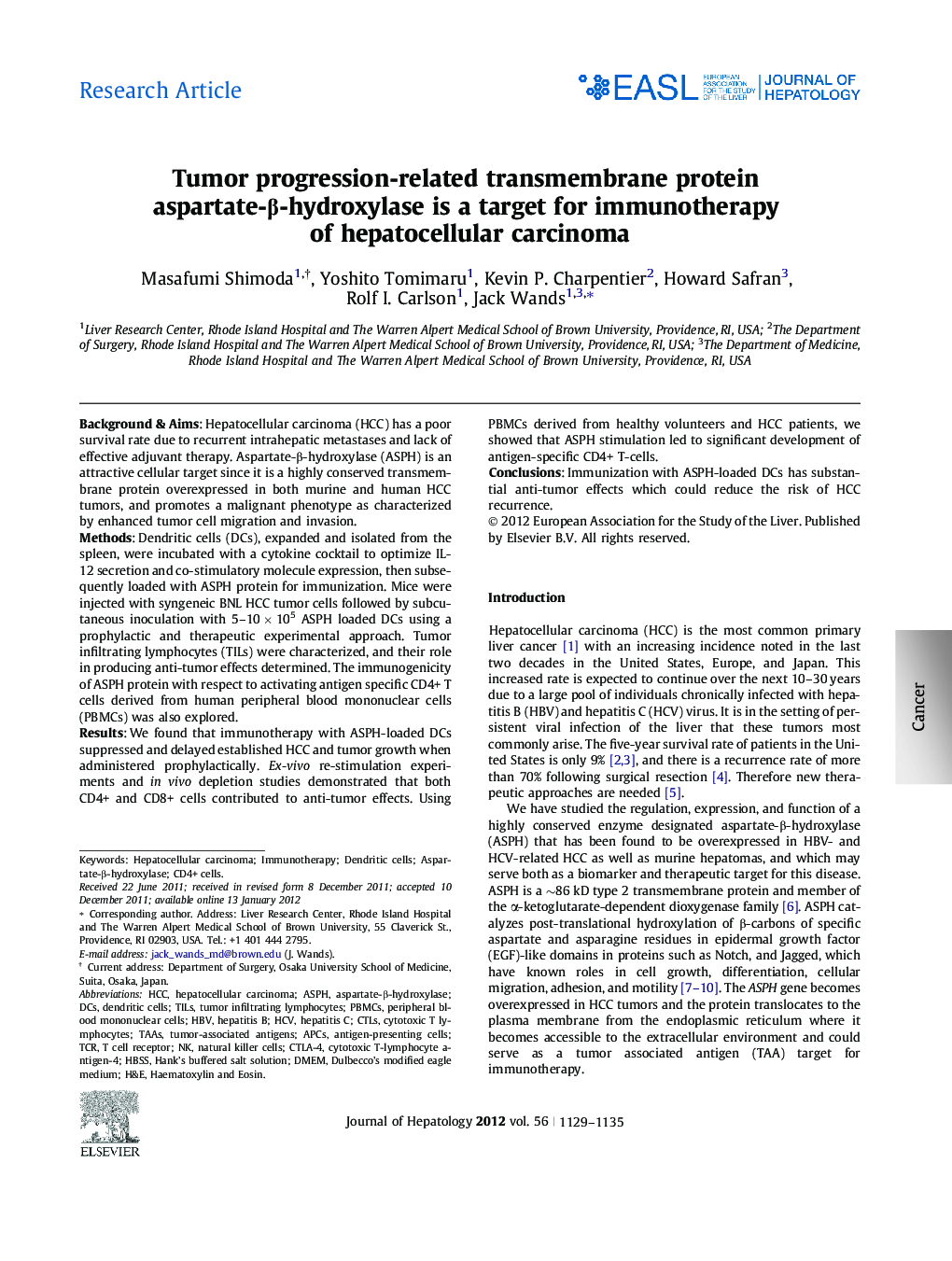| Article ID | Journal | Published Year | Pages | File Type |
|---|---|---|---|---|
| 6104547 | Journal of Hepatology | 2012 | 7 Pages |
Background & AimsHepatocellular carcinoma (HCC) has a poor survival rate due to recurrent intrahepatic metastases and lack of effective adjuvant therapy. Aspartate-β-hydroxylase (ASPH) is an attractive cellular target since it is a highly conserved transmembrane protein overexpressed in both murine and human HCC tumors, and promotes a malignant phenotype as characterized by enhanced tumor cell migration and invasion.MethodsDendritic cells (DCs), expanded and isolated from the spleen, were incubated with a cytokine cocktail to optimize IL-12 secretion and co-stimulatory molecule expression, then subsequently loaded with ASPH protein for immunization. Mice were injected with syngeneic BNL HCC tumor cells followed by subcutaneous inoculation with 5-10 Ã 105 ASPH loaded DCs using a prophylactic and therapeutic experimental approach. Tumor infiltrating lymphocytes (TILs) were characterized, and their role in producing anti-tumor effects determined. The immunogenicity of ASPH protein with respect to activating antigen specific CD4+ T cells derived from human peripheral blood mononuclear cells (PBMCs) was also explored.ResultsWe found that immunotherapy with ASPH-loaded DCs suppressed and delayed established HCC and tumor growth when administered prophylactically. Ex-vivo re-stimulation experiments and in vivo depletion studies demonstrated that both CD4+ and CD8+ cells contributed to anti-tumor effects. Using PBMCs derived from healthy volunteers and HCC patients, we showed that ASPH stimulation led to significant development of antigen-specific CD4+ T-cells.ConclusionsImmunization with ASPH-loaded DCs has substantial anti-tumor effects which could reduce the risk of HCC recurrence.
